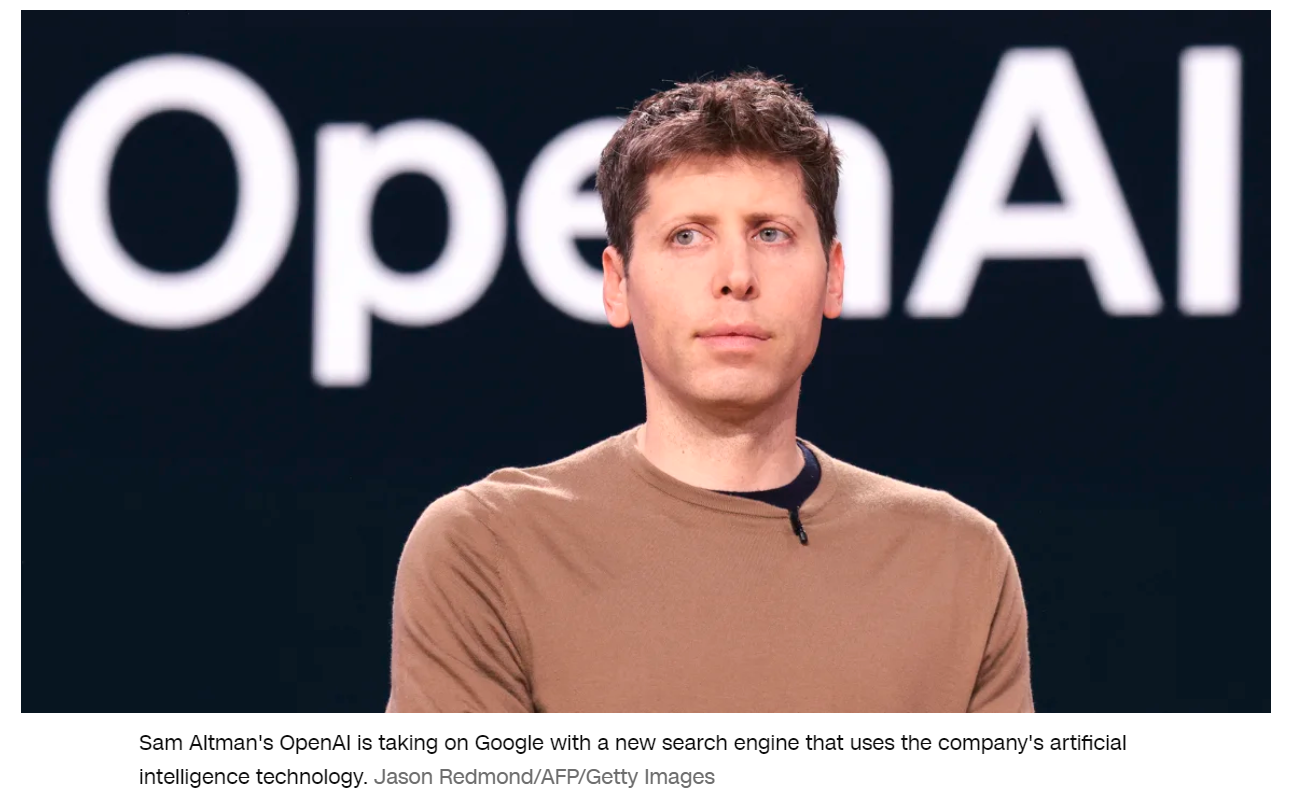OpenAI Launches SearchGPT: A New AI-Powered Search Engine to Rival Google and Bing

July 27, 2024 — OpenAI has announced its latest venture into the search engine market with SearchGPT, a cutting-edge tool that integrates artificial intelligence from the ground up. This new search engine aims to revolutionize how users find information online by combining OpenAI’s advanced AI technology with real-time web data.
SearchGPT, currently in an early testing phase for a select group of users, allows people to search for information conversationally, akin to interacting with ChatGPT. OpenAI plans to incorporate SearchGPT into ChatGPT in the future, further enhancing its capabilities.
The launch of SearchGPT signifies a direct challenge to Google, which has long dominated the online search market. Google has been striving to keep up with the AI boom that began when OpenAI introduced ChatGPT in November 2022. The new search engine also presents a competitive threat to Microsoft’s Bing, which integrated OpenAI’s technology last year to better compete with Google.
SearchGPT enables users to pose questions in natural language, receiving detailed answers along with links to up-to-date information from reputable sources. Unlike ChatGPT, which relies on older data, SearchGPT ensures the provision of current information, offering users a richer, more accurate search experience.
In a demo shared by OpenAI, a query about the “best tomatoes to grow in Minnesota” was answered with detailed information on tomato varieties and included links to resources such as “The Garden Magazine” and “The Gardening Dad.” Additionally, SearchGPT displays a sidebar with extra links to relevant content, similar to the traditional search results page on Google.
“Getting answers on the web can take a lot of effort, often requiring multiple attempts to get relevant results,” OpenAI stated in a blog post. “We believe that by enhancing the conversational capabilities of our models with real-time information from the web, finding what you’re looking for can be faster and easier.”
The introduction of SearchGPT could solidify generative AI as the future of online search. Generative AI, which can create original text and other media, has been experimented with by Google and others in early attempts to incorporate AI-generated answers into search. However, challenges remain, particularly concerning the tendency of AI tools to present false information confidently without indicating potential inaccuracies.
OpenAI’s announcement comes after Google’s rollout in May of AI-generated summaries atop some search results pages. Google’s feature faced backlash for providing inaccurate and nonsensical information, leading to a quick rollback.
Concerns have also been raised among news publishers about the potential impact of AI summaries on web traffic, as users might not visit their sites for information. OpenAI addressed these concerns by partnering with publishers to develop SearchGPT, offering them control over how they appear in search results. Sites can be included in SearchGPT even if they have opted out of contributing content for training OpenAI’s AI models.
As OpenAI continues to test and refine SearchGPT, the competitive dynamics of the search engine market are poised for significant change, promising a new era of AI-enhanced search capabilities for users worldwide.

















Facebook Comments